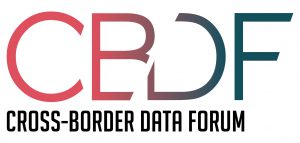For the full text, please see the European Law Blog at:
Must the U.S. Congress change statutory law to solve the major issue of “redress” in the EU-US adequacy negotiations? This is a crucial question, especially since a series of political, pragmatic and even legal/constitutional difficulties mean that the U.S. might not be able to come up with a short-term statutory solution for redress. In this article we analyse this question for the first time in detail, and argue that, provided the U.S. is able to address the deficiencies highlighted by the Court of Justice of the European Union (CJEU) in its Schrems II judgment (independence of the redress body; ability to substantively review the requests; and authority to issue decisions that are binding on the intelligence agencies), then relying on a non-statutory solution could be compatible with the “essential equivalence” requirements of Article 45 of the EU’s General Data Protection Regulation (GDPR). In a second, forthcoming article, we set forth specific elements of a novel non-statutory solution and assess whether it would meet the substantive European legal requirements for redress.
The CJEU issued its Schrems II judgment in July, 2020, invalidating the EU/U.S. Privacy Shield and creating uncertainty about the use of Standard Contractual Clauses (SCCs) for transfers of personal data to all third countries (see analysis here, here, here, here and here). In light of the legal uncertainty and the increasing tensions concerning transatlantic data transfers resulting from the intensification of enforcement actions by European data protection authorities (DPAs) since Schrems II (such as this and this), there is both strong reason to reach a new EU/U.S. agreement and also a stated willingness of both sides to do so. The European Commission, understandably, has emphasized though that there is no “quick fix” and that any new agreement must meet the full requirements of EU law.
This article focuses on one of the two deficiencies highlighted by the CJEU: the need for the U.S. legal system to provide a redress avenue accessible to all EU data subjects. We do not address here the other deficiency– whether U.S. surveillance statues and procedures sufficiently incorporate principles of ‘necessity and proportionality’ also required under EU law.
We concentrate our inquiry, from both a U.S. and a European law perspective, on whether the U.S. Congress would necessarily have to enact a new statute in order to create an adequate redress mechanism. Part I of this article explains the pragmatic and political reasons why it would be difficult to adopt a new U.S. statute, and especially to do so quickly. Part II examines the U.S. constitutional requirements for “standing”, and explains the legal difficulties and uncertainty concerning proposals, such as the one advanced by the American Civil Liberties Union (ACLU), to provide redress through an individual action in U.S. federal courts. Part III then addresses European law concerning whether a statute is necessary, concluding that the substance of the protections of fundamental rights and respect of the essence of the right to an effective remedy are the key considerations, rather than the form by which an independent and effective redress mechanism would be created.
This article will be followed by a second article exploring whether a non-statutory solution for redress is capable of satisfying the strict substantive standards required by EU law.
…
Conclusion
In sum, European law is flexible in interpreting whether the United States must adopt a new statute to meet redress requirements, especially when the question is viewed through the “essential equivalence” prism of data protection. Substance prevails over form. It remains true that a statutory approach would in abstracto be the easiest way for the United States to establish a permanent and independent redress body for effectively reviewing complaints and adopting decisions that bind intelligence services. However, when one takes into consideration the political, practical and constitutional difficulties confronting negotiators, it makes sense to achieve the same results in a different way.
In a second article, to be published shortly, we will detail specific elements of a non-statutory solution and assess whether it would meet the substantive European requirements on redress.
These statements are attributable only to the authors, and their publication here does not necessarily reflect the view of the Cross-Border Data Forum or any participating individuals or organizations.

